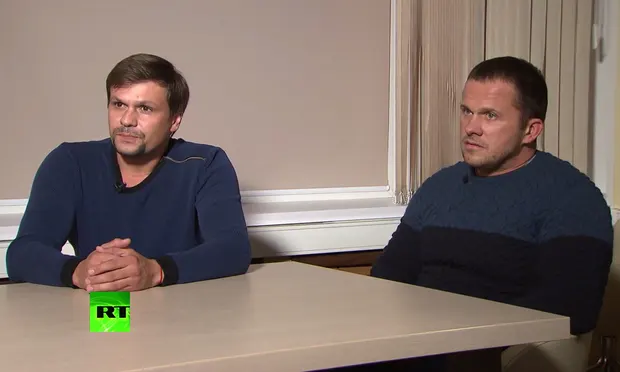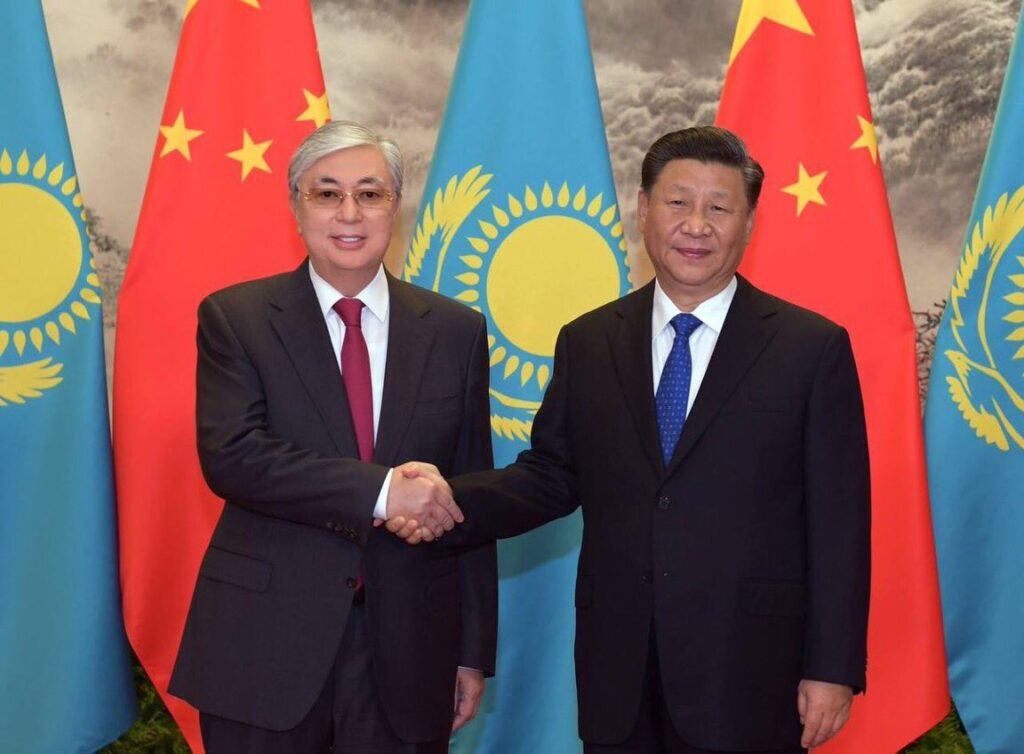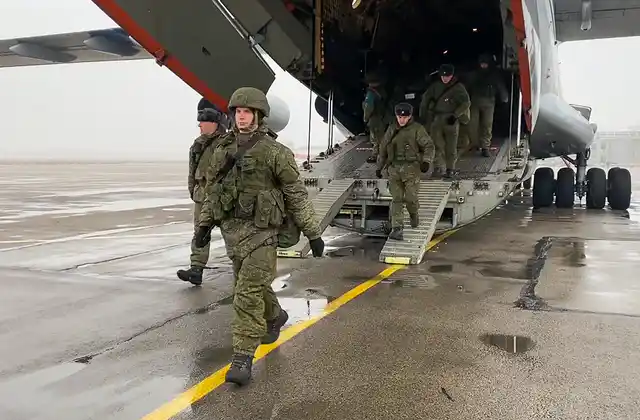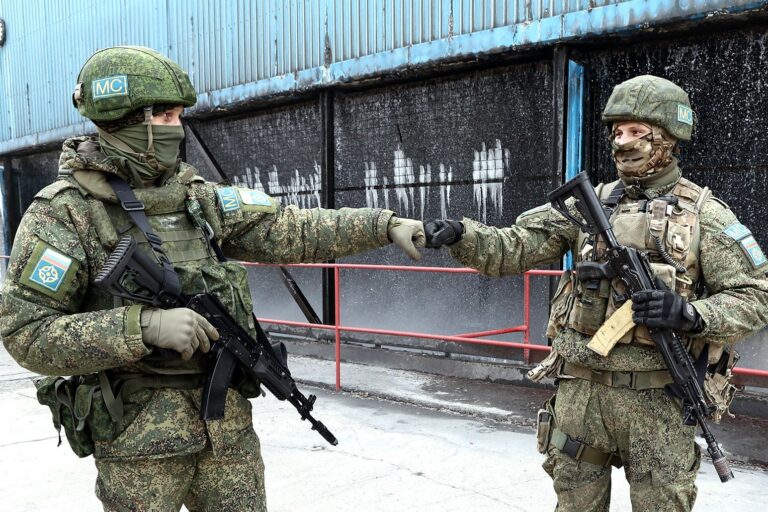It can be stated with high probability that the Kremlin is discussing the possibility of conducting another military operation in Kazakhstan. This is indicated by a statement from Margarita Simonyan, head of the Russian propaganda channel Russia Today.
Although the statement was presented as her personal opinion, Simonyan’s close collaboration with Russia’s Ministry of Defense and her involvement in numerous information operations carried out by the Main Directorate of the Ministry of Defense (Russia’s military intelligence) suggest that the topic of a military operation in Kazakhstan might be under discussion in the Kremlin.
We believe that Moscow views a potential operation in Kazakhstan as a response to Türkiye, which Russia holds responsible for the collapse of the Assad regime in Syria.
This information campaign highlights Margarita Simonyan’s active role in Russia’s hybrid operations and points to an oversight in her exclusion from the list of Russians the EU plans to sanction for their involvement in hybrid operations in Europe and Africa.
Possible Reasons for a Russian Military Operation in Kazakhstan
- Perceived Threat to Russian Influence in Central Asia:
- Kazakhstan is a key player in Central Asia and a member of the Eurasian Economic Union (EAEU) and the Collective Security Treaty Organization (CSTO). If Kazakhstan were to pivot away from these organizations or align more closely with Western powers or China, Russia might perceive this as a direct threat to its sphere of influence.
- Ethnic Russian Population:
- Northern Kazakhstan has a significant ethnic Russian population, particularly in regions bordering Russia. If Moscow claims that this population is under threat (a narrative it has used in Ukraine and Georgia), it might justify intervention under the guise of “protecting Russian speakers.”
- Instability or Regime Change in Kazakhstan:
- Internal unrest, such as the large-scale protests in early 2022, could be used as a pretext for intervention. Russia has historically acted to stabilize allied regimes (e.g., its intervention during the January 2022 unrest under CSTO auspices).
- Geopolitical Strategy:
- Kazakhstan’s vast natural resources (oil, gas, uranium) and strategic location make it critical to Russia’s economic and geopolitical interests. A loss of influence in Kazakhstan could weaken Russia’s regional dominance and open the door to increased Chinese or Western involvement.
- Pressure on Central Asian States:
- Russia may use military action in Kazakhstan as a demonstration of power to deter other Central Asian states from drifting away from Moscow’s orbit.

More on this story: RT as Russian interagency tool for running psyops

Challenges and Risks for Russia
- International Backlash:
- A military operation in Kazakhstan would likely provoke significant international condemnation, sanctions, and further isolation, especially in light of the ongoing war in Ukraine.
- Local Resistance:
- Kazakh nationalism and potential resistance from the Kazakh military and population could turn an intervention into a prolonged and costly conflict.
- Strain on Russian Resources:
- With Russia already heavily committed in Ukraine, opening another front could overstretch its military and economic capacity.
- Regional Instability:
- Military action could destabilize Central Asia, affecting neighboring states like Kyrgyzstan and Uzbekistan, and potentially triggering broader regional conflicts.
Likelihood of Such an Operation
While the reasons listed above could theoretically motivate Russia to intervene militarily in Kazakhstan, the likelihood of such an operation depends on several factors, including Kazakhstan’s domestic stability, the Kremlin’s priorities, and the international geopolitical environment. For now, Moscow seems more inclined to exert influence through economic and political means rather than overt military action, given its current focus on Ukraine and the significant risks involved.

More on this story: Kazakhstan’s Uranium Deal with China: Strategic Gains and Hidden Risks

More on this story: Unrest in Kazakhstan: potential geopolitical impact




